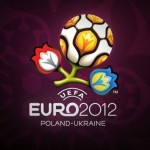During the Euro 2012 , the most extensive case of soccer hooliganism for more than two decades broke out between fans of Poland and Russia. The confrontation has prompted the sport’s two largest governing bodies – UEFA (the European governing body that is organizing the tournament) and FIFA (the international overseer of all things soccer) – to order an investigation that may change the way big tournaments are organized.
On Thursday, in the hours leading up to a 1-1 draw between the two teams in Group A of Euro 2012, hundreds of fans fought brutal battles with fists, bottles and metal weapons on the streets of the Polish capital Warsaw. Riot police fired rubber bullets and released tear gas in order to keep them apart.
A series of factors merged to make this the highest-risk match of the championships in terms of fan violence and unfortunately brutality came out. Although officials claimed only 10 people had been seriously hurt, onlookers estimated that figure to be much lower.
The shocking scenes, the likes of which soccer hoped were a thing of the past, will urge a prompt response from both UEFA and FIFA.
A wide-ranging investigation into the events has already begun, in conjunction with Polish police, anti-hooliganism agencies from both nations and Euro 2012 security bosses. Once the tournament is over, the same group of FIFA and UEFA officials will consider ways to avoid a repeat of clashes that outshone the on-field action on day five of the tournament.
According to sources, one proposal sure to gain support is for the organizing committee for the World Cups and European Championship to have freedom to alter the scheduling and location of certain matches in order to make outbursts of hooliganism less likely. Changes may soon be made to alter the system and allow more flexibility.
Regardless of whatever achievements their national teams can muster in the rest of the competition, though, the soccer reputation of both countries has been seriously discoloured.




































